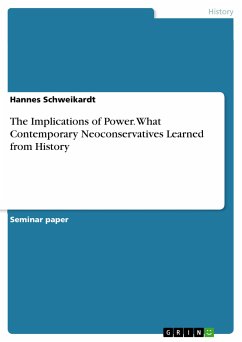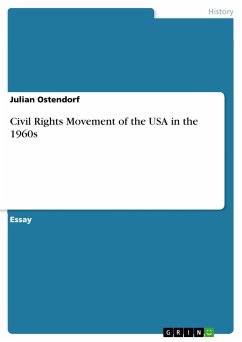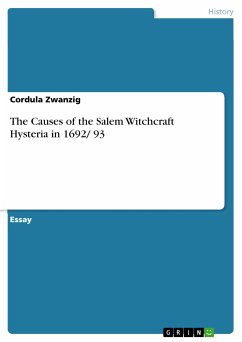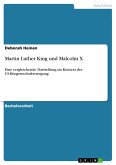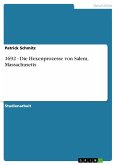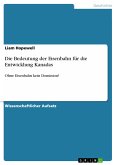Seminar paper from the year 2014 in the subject History - America, grade: 1,3, University of Tubingen (Seminar für Zeitgeschichte), course: Readings in Recent American Military History, SS 2012, language: English, abstract: This thesis analyzes 50 central texts from the five neoconservative writers Charles Krauthammer, William Kristol, Robert Kagan, Richard Perle and Norman Podhoretz to portrait their contributions to the public debate about foreign policy after the Cold War. At the heart of the analysis lies the preemptive strike launched on Iraq in March 2003 and its aftermath. All of the authors under research have openly advocated this decision prior to the invasion, one main question for this thesis is therefore how they assessed the actual implementation of the strategy and its consequences. The central Chapter 2 on the assessment of Iraq seeks to answer what they have learned from Iraq. Before I can answer this adequately, it is necessary to analyze their writings prior to 9/11 and then between 9/11 and the invasion of Iraq. I will do this in Chapter 1 and thereby answer the question, what broader lessons the authors have learned from history. Knowing the answer is necessary to understand why they proposed a preemptive strike on Iraq and what their intentions were. Chapter 3 then seeks to connect these insights from Chapter 1 and 2 to shed light on the overall lessons that the authors have learned from their experiences since the end of the Cold War and 8 years of foreign policy under president George W. Bush. As a result, we will have an imperfect yet comprehen-sive overview of neoconservative thinking on American foreign policy since the end of the Cold War. There is a host of literature on different aspects of the Iraq war that also frequently raise the question to what extent decisions in the administration were actively influenced or taken by neocon-servatives . However, I could not find an analysis of neoconservative texts before and after Iraq. I therefore claim that there is a mismatch between the acclaimed influence of neoconservativism and the extent to which neoconservative writers’ assessment of the Iraq war has been analyzed. In this thesis, I intend to fill this gap with extensive study of original sources instead of secondary literature.
Bitte wählen Sie Ihr Anliegen aus.
Rechnungen
Retourenschein anfordern
Bestellstatus
Storno

